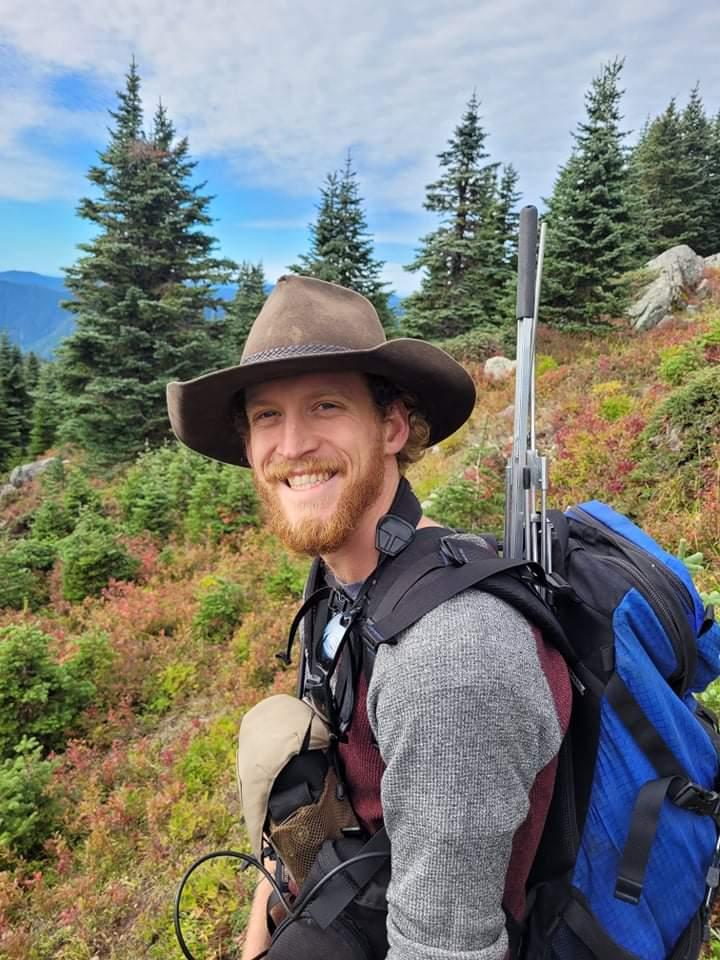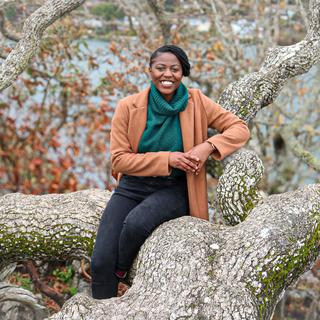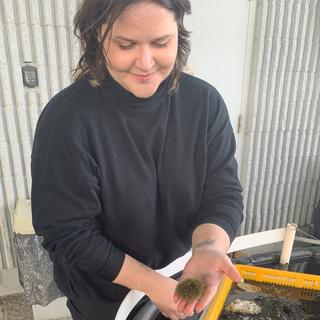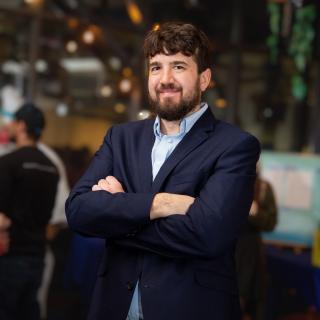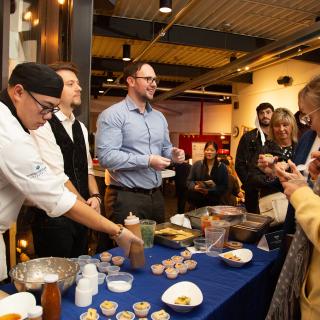On the last day of a week-long survey this summer in Strathcona Provincial Park, Vancouver Island University (VIU) alum Kevin Gourlay made a remarkable discovery – a new Vancouver Island marmot colony.
The Vancouver Island marmot is Canada’s most endangered mammal. According to the Marmot Recovery Foundation, in 2004 there were fewer than 30 marmots remaining in the wild. Recovery efforts since that time have increased population levels to more than 200, but the mammal is still critically endangered.
Gourlay, who graduated from VIU with a Bachelor of Science degree, majoring in Biology, made the discovery through his work as a Field Technician for the Marmot Recovery Foundation.
“The discovery of the new Vancouver Island marmot colony was a highlight of this summer,” says Gourlay. “It happened on the last day of a week-long survey trip that my colleague and I made into Strathcona Provincial Park to survey several marmot colonies.”
Gourlay credits the education and the research opportunities he had at VIU as instrumental in landing his “dream job” after graduation.
“The connections and skills that I acquired over the course of my degree prepared me for my dream field of work: working in conservation biology here on Vancouver Island with a species that is close to my heart,” says Gourlay.
Gourlay will start working as the Marmot Recovery Foundation’s Field Coordinator this spring. Read on to learn more about Gourlay’s exciting discovery, and what’s next for him.
You recently discovered a new Vancouver Island marmot colony in Strathcona Park. Tell us more about that.
On a whim, I decided to investigate a new area that looked like it had the potential to support marmots, but had no record of being surveyed in the past. I was surprised to find a very healthy, well-established marmot colony with 11-12 individuals including pups, yearlings and adults. Given that the wild population of Vancouver Island marmots hovers around 200 individuals, this was a huge find, and a very positive sign for the species as a whole.
Tell us about your role at the Vancouver Island Marmot Recovery Foundation.
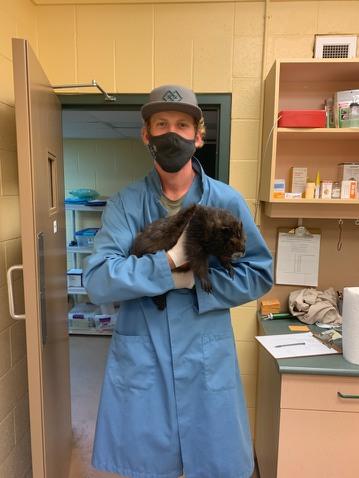
I am proud of the work that my team has completed this summer. Since May, we have spent an average of 15-20 days a month in the backcountry monitoring, surveying, trapping, releasing and caring for Canada’s most endangered mammal. Although at times very physically demanding, this work has been extremely rewarding as we were able to directly help this endangered species recover from the brink of extinction. I think the most rewarding aspect of our work is being able to go back to the same colonies throughout the summer and see the same marmots thriving because of our direct interventions, such as supplemental feeding and releasing captive-bred marmots into the wild.
Why did you choose VIU for your education?
I was looking for a small institution that had small class sizes, profs that were genuinely interested in teaching their students, and a school culture that was invested in learning and fostering curiosity. This is the reputation that I had heard about at VIU, and I was not disappointed!
Where were you in your life when you realized education would help you achieve your goals?
I decided to return to school after spending almost two years abroad travelling through Europe and Australia. I spent this time pursuing my passion of working with animals while I travelled on a working holiday visa, stopping to work at places such as veterinary hospitals, hobby farms, large livestock farms in the Australian outback and guided horseback tourism companies. I found myself wanting to do more with animals, and so I decided to return to school to pursue biology studies that would allow me to work in either veterinary medicine or wildlife conservation.
Can you share a highlight from your time at VIU?
Some of the most impactful learning experiences I had in my degree were on field trips, of which there were many. On one occasion, in a class called Invertebrate Zoology, Dr. Tim Goater brought the class out to the Bamfield Marine Sciences Center for a three-day field trip where we spent our time boating on the ocean and walking the intertidal areas collecting and identifying invertebrate organisms. This hands-on experience was pivotal in inspiring my decision to work in the field of conservation.
You received a VIU undergraduate REACH Award for your research project on the Vancouver Island marmot. Can you tell us about the project and how participating in undergraduate research helped you prepare for your current role in the workforce?
My research focused on looking for trends of intestinal parasites in the Vancouver Island marmot across the whole population. It was an interesting study as there is currently very little published describing parasites in this highly endangered species, so there was a lot of potential to discover new information about their parasites, which we did. Completing my undergraduate research thesis in a field related to my current job was a huge step up for me. It gave me the opportunity to acquire tons of background knowledge and make connections with people in my field, which ultimately led to my employment in my dream job.
What’s next for you?
I am moving to the Northwest Territories this winter to work for an Indigenous-owned and operated eco-tourism company, learning from the local Gwich’in people and helping to train and run sled dogs. I look forward to continuing my work with the endangered Vancouver Island marmot next spring for another full field season. I plan on returning to school within the next five years to continue my education, either in a master’s program related to wildlife biology or in a doctorate of veterinary medicine.

